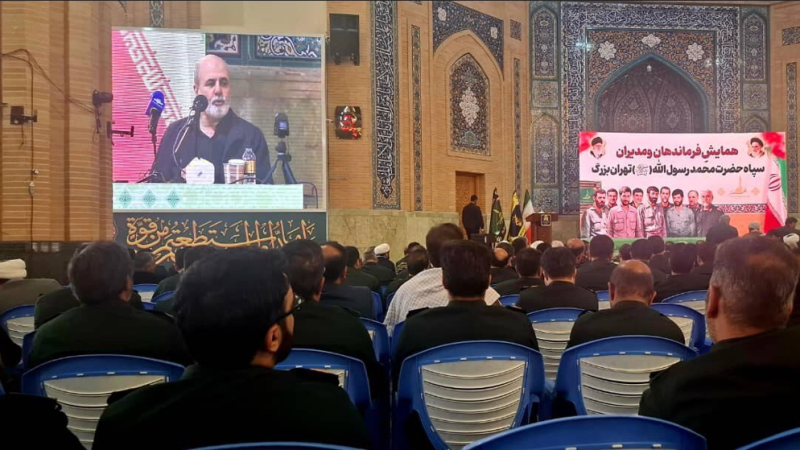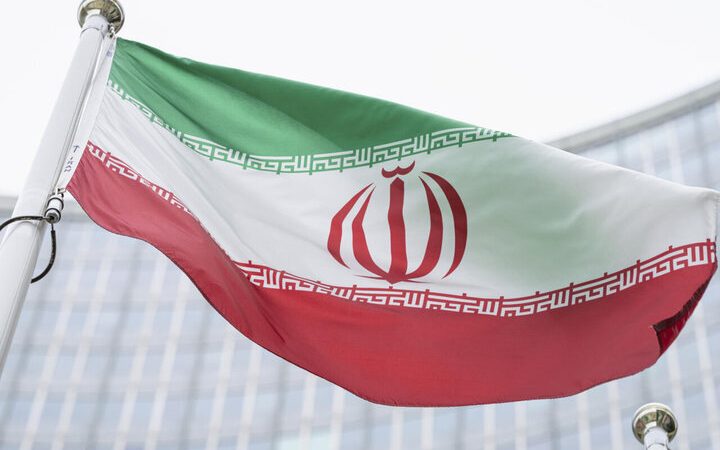Given the importance of the Iraqi authorities’ official announcement of the prohibition of activities by militant groups based in Iraqi Kurdistan, and to address the various dimensions of this issue from a legal perspective while considering human rights concerns, we decided to contribute to a better understanding of this matter by presenting analyses from several experts. In this regard, Navid Kamali, an expert on regional issues, has also provided an exclusive commentary for the Iranian Kurdistan Human Rights Watch analyzing the different aspects and angles of this important development.
The full text of the commentary is as follows:
The Strategic Importance of Ending the Activities of Anti-Iranian Armed Groups in Iraq Under the Tehran-Baghdad Security Agreement
Regarding the security agreement between Iran and Iraq and its implications for anti-Iranian armed groups based in Iraqi Kurdistan, it is crucial to note that this agreement encompasses various security, political, legal, and social dimensions. It can be considered a turning point in the relations between the two neighboring countries after decades of facing security challenges stemming from the presence of armed groups on Iraqi soil. The fundamental importance of this agreement lies in establishing the security of shared borders, strengthening the elements of national sovereignty for both countries, and creating a more favorable environment for expanding bilateral and regional cooperation.
The prohibition of these groups’ activities and the requirement for their disarmament and the dismantling of their camps is not merely a temporary tactical measure. Rather, it is a manifestation of the shared political will of Tehran and Baghdad and part of a broader strategy to end a situation that has directly threatened the national security of the Islamic Republic of Iran for years while simultaneously challenging the authority and sovereignty of the central government of Iraq, particularly in its northern regions. These groups, exploiting the particularly difficult geographical conditions of the border areas and some of Iraq’s internal political complexities, especially in the relations between Baghdad and Erbil, had established and consolidated bases that not only served as platforms for planning, directing, and executing terrorist operations, sabotage activities, espionage, and the creation of ethnic discord against our country but also became hubs for other organized criminal activities such as arms, drug, and goods trafficking, as well as creating public insecurity in the border areas of both countries. Therefore, the full and precise implementation of the provisions of the security agreement, especially the clauses related to disarmament, the dismantling of camps, and the prevention of any activity by these groups, signifies the closure of one of the most significant avenues of infiltration and action against Iran’s security from the territory of its western neighbor and the end of decades of appeasement or inability to control this threat. This action, which has been pursued through continuous efforts by our country, the joint will of the governments of Tehran and Baghdad, and ultimately, pressure on the authorities of Iraqi Kurdistan to adhere to their commitments, demonstrates a deeper understanding by both sides of the nature of shared threats and the necessity of close cooperation to counter them. The strategic importance of this prohibition lies in the fact that it severely limits the vital space for these groups’ operational breathing room and maneuverability, weakens their logistical, training, and organizational capabilities, and sends a firm and clear message to these groups themselves, as well as their regional and extra-regional supporters, that the era of exploiting Iraqi territory as a safe haven for action against the Islamic Republic of Iran is coming to an end. Furthermore, the implementation of this agreement significantly contributes to strengthening the authority of the central government of Iraq throughout its territory, including in Iraqi Kurdistan, and is an important step towards the full implementation of the Iraqi constitution and preventing a part of the country’s territory from becoming a platform for threatening its neighbors.
Fortunately, the ultimatum issued by the Sulaymaniyah security forces to anti-Iranian groups to evacuate their headquarters in Zargwez, Baneh Goreh, and Kole Rash, and the threat of using force in case of non-compliance, which followed the official order of the Iraqi federal government and the Prime Minister’s office confirming the prohibition of all military, media, or political activities of these groups, indicates an increased seriousness on the part of the Iraqi side, both at the central government level and within a part of the Kurdistan Regional Government’s structure, in implementing its commitments under the security agreement signed in March 2023. These practical measures, if pursued and implemented decisively, completely, and in a sustained and continuous manner, will be able to significantly reduce the level of security threats against the western and northwestern borders of the country and provide a suitable platform for deepening and expanding security, intelligence, and even economic cooperation between the two countries.
The Necessity of Judicial Accountability and Legal Cooperation Between Tehran and Baghdad
Alongside the undeniable importance of disarmament and ending the organized military and political activities of these groups, another vital issue that should not be overlooked is the necessity of holding their leaders, commanders, and influential members accountable for the wide range of crimes they have committed over the years against innocent citizens, military and law enforcement forces, and the security and territorial integrity of the Islamic Republic of Iran.
This accountability, which should be pursued within the framework of judicial and legal cooperation between Iran and Iraq, can be a necessary and reinforcing complement to the security agreement and help achieve justice for the victims, enforce the law, and prevent the recurrence of such crimes in the future.
The records of these groups are replete with terrorist acts, including the assassination of national and military officials, bombings in public and urban areas, attacks on border posts and patrols, kidnapping of ordinary citizens and military personnel, armed extortion, intelligence and operational cooperation with foreign intelligence services and hostile governments against our country’s national interests, and participation in creating insecurity and instability in border areas. Failure to prosecute and punish the perpetrators and instigators of these crimes means disregarding the blood of thousands of martyrs and veterans and perpetuating the feeling of injustice among the families of the victims and the general Iranian public. From the perspective of international law and bilateral relations, the judicial pursuit of these cases, whether in the competent courts of our country or in Iraqi courts based on the territorial jurisdiction of some crimes or based on bilateral and multilateral agreements on combating terrorism and organized crime, can send a powerful message about the intolerance of terrorism and the necessity of holding its perpetrators accountable, regardless of the place and time of the crime. This action not only has a restorative aspect for the victims and achieves criminal justice but also acts as a strong deterrent from a strategic and security standpoint because it clearly demonstrates that committing crimes against our nation and security, even by fleeing to neighboring countries and taking refuge in difficult-to-access areas, will not entail judicial immunity, and sooner or later, the perpetrators will have to answer before justice.
Activating and strengthening the capacities for judicial cooperation between the two countries, including the exchange of legal and judicial information, the execution of judicial delegations, the identification and tracking of suspects and criminals, and especially, the implementation of extradition agreements based on the domestic laws of both parties and relevant international treaties, can significantly help in the arrest and fair trial of these individuals.
Managing the Return of Former and Separated Members with Islamic Compassion
Amidst the focus on the security and judicial dimensions of countering armed groups, one should not neglect the humanitarian and legal situation of those individuals who, for various reasons such as being deceived by false propaganda, social or family pressures, severe economic problems, political naivety, or even youthful adventurism, joined these groups and now, having witnessed the impasse of armed and terrorist activities, understanding the bitter realities within the organization, and perhaps expressing remorse for the past, intend to completely separate from these organizations and return to the embrace of their families and a normal and peaceful life in our country. Adopting an intelligent, humane, and at the same time precise and differentiated approach towards these individuals, while maintaining full decisiveness and seriousness against the main elements, commanders, ideological cadres, and individuals whose hands are stained with the blood of the people, can significantly help weaken the social base and human resources of these groups. On the other hand, it can showcase an image of the Iranian government’s compassion, wisdom, and prudence in dealing with this complex phenomenon.
Many of these individuals may be victims of unfavorable conditions, toxic propaganda, or the exploitation by group leaders and are now in a critical and uncertain situation in camps or areas under the influence of these groups in Iraq. Providing a way for the safe and dignified return of these individuals to the country, after a thorough review of their records and ensuring that they have not committed serious crimes and do not pose a security threat, is considered an important strategic action. This requires the design and implementation of specific, transparent, and legal mechanisms for reviewing the situation of each individual, providing necessary counseling, obtaining legal commitments, and, if conditions are met, issuing a letter of safe conduct or facilitating the return process and providing the minimum conditions for their reintegration into society, under the supervision and support of responsible institutions. Achieving this important goal requires close and coordinated cooperation between various Iranian government agencies, as well as establishing effective communication and cooperation channels with the central government of Iraq and relevant authorities in Iraqi Kurdistan.
Sustainable Development of Border Regions: A Strategic Necessity for Long-Term Security
The final point that should not be overshadowed by the recent security developments and successes in implementing the agreement with Baghdad and should not be neglected is the need for increased, continuous, and strategic attention from senior Iranian government officials to the vital issue of comprehensive and sustainable development, inclusive economic growth, and the strengthening of social stability in the western and northwestern border regions of the country, especially the Kurdish-populated provinces. These regions, which due to their geopolitical location have been at the forefront of countering security threats arising from the activities of terrorist and separatist groups, and whose brave, honorable, and border-guarding people have consistently demonstrated their loyalty to Iran, its territorial integrity, and national security in the best possible way over the past decades, deserve and warrant far greater attention and investment in all areas.
Addressing the root causes of historical deprivations, creating sustainable and productive job opportunities, especially for the younger generation, balanced development of essential infrastructure including safe and efficient transportation routes, sustainable energy networks, access to safe and sufficient water, comprehensive coverage of communications and information technology, purposefully boosting local businesses and legitimate and healthy cross-border trade with Baghdad, Iraqi Kurdistan, and other neighbors, strengthening and facilitating constructive cultural and social exchanges, and most importantly, serious attention to the legitimate demands, legal rights, and citizenship rights of the residents of these areas and increasing their genuine participation in the decision-making and executive processes related to their fate, are the best and most sustainable strategy for immunizing the local community against the ideological infiltration and toxic propaganda of armed groups and criminal sects.
Sustainable and deep security is never achieved solely through hard military and security measures but is the product of an inseparable link between balanced economic development, comprehensive social justice, public satisfaction, and a strong sense of national belonging among all people, especially border residents. Boosting cross-border trade by activating and organizing border markets, establishing free trade zones or special economic zones with specific functions, and providing necessary incentives to domestic and foreign investors can significantly improve the living standards of border residents and turn them into the primary guardians of security and stability on the borders. Targeted investment in sectors with comparative advantages in these regions, such as modern agriculture, animal husbandry, processing and supplementary industries, mining, tourism, and technical and engineering services, can reduce unemployment rates, prevent the migration of elites and youth, and consequently, increase hope for the future and strengthen national solidarity.
This increased effort and serious determination for the development, construction, and prosperity of the Kurdish-populated regions of our country is not only a national, ethical, and humanitarian duty towards the citizens of this part of the country but also an undeniable strategic necessity for consolidating and strengthening long-term sustainable national security and can also double the effectiveness of the security agreement with Baghdad and similar measures. This is because a developed, prosperous, hopeful society with a sense of participation will be far less susceptible to accepting and aligning with extremist, separatist, terrorist, and violent ideologies. In this regard, joint and constructive cooperation between Tehran, Baghdad, and Erbil in facilitating legitimate trade, improving customs and transportation infrastructure for goods at official border crossings can also significantly contribute to achieving this economic prosperity and sustainable development and replace security threats with shared economic interests.
MNA/







